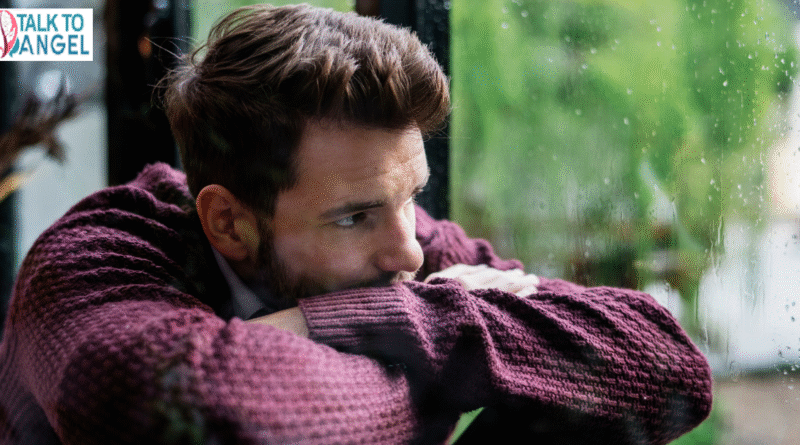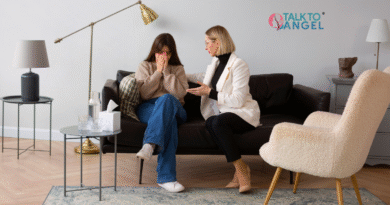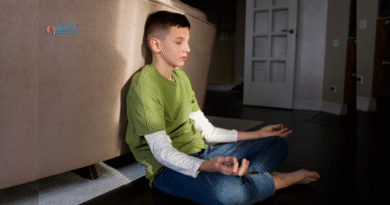Loneliness: Silent Struggle & Path to Connection
Whether triggered by life transitions, loss, social anxiety, or modern lifestyle changes, loneliness is a serious concern affecting mental and physical well-being. In this blog, we’ll explore what loneliness is, its symptoms, mental health impacts, therapeutic options, and the latest trends in combating isolation.
What Is Loneliness?
can be surrounded by people and still feel lonely if your relationships lack depth, understanding, or emotional support.
There are different types of loneliness:
- Social loneliness: Feeling like you don’t belong to a wider community or group.
- Existential loneliness: A profound and philosophical feeling of isolation or disconnection from life and its meaning.
It’s important to distinguish loneliness from solitude.
Symptoms and Signs of Loneliness
Loneliness manifests differently for everyone. Common emotional and behavioural signs include:
- Feeling empty or invisible
- Difficulty forming or maintaining relationships
- Increased use of social media without satisfaction
- Constant self-doubt or fear of rejection
- Withdrawal from social situations
- Low self-esteem and sadness
Over time, prolonged loneliness can lead to serious mental health issues, including depression, anxiety, and even physical health problems like high blood pressure and weakened immunity.
Why Are People Feeling Lonely Today?
Several factors contribute to rising levels of loneliness:
- Digital dependence: Online interactions often replace face-to-face relationships but lack depth.
- Urbanisation and relocation: Moving away from family for work or education often leaves people without support systems.
- Life transitions: Events like breakups, retirement, or bereavement can trigger isolation.
- Stigma around vulnerability: Many fears of expressing emotional needs, leading to internal isolation.
- Social anxiety: People with social phobia often find it difficult to initiate or maintain relationships.
Even individuals in relationships or families can feel chronically lonely if emotional bonds are weak or toxic.
Therapy for Loneliness: A Proven Path to Healing
If loneliness begins to affect your mental health or daily functioning, it’s important to seek help. Here are the most effective therapeutic options:
1. Cognitive Behavioural Therapy (CBT)
CBT helps individuals recognise and shift negative thoughts that reinforce desolation, such as beliefs of unworthiness or fear of rejection.
2. Interpersonal Therapy (IPT)
IPT focuses on building relationship skills and navigating social roles, making it especially effective for desolation caused by conflict or life transitions.
3. Mindfulness-Based Therapy
Mindfulness techniques help manage distress, reduce overthinking, and increase presence during social interactions.
If you’re feeling isolated, working with a therapist in India or connecting with a licensed online psychologist can help you take the first step toward healing.
Online Counselling: Accessible Help for the Lonely
For many experiencing loneliness, the idea of meeting a therapist face-to-face can be daunting. Thankfully, online counselling bridges this gap by offering confidential, judgment-free sessions through video, chat, or phone.
Platforms with certified online therapists and counselling psychologists help people who may feel uncomfortable in traditional clinical settings or those living in remote areas. Whether you’re searching for a clinical psychologist near me or a top psychologist in India, online therapy makes support accessible, affordable, and stigma-free.
TalkToAngel: Compassionate Online Therapy for Loneliness
TalkToAngel is a leading digital mental health platform offering expert support for individuals battling desolation, isolation, or social anxiety. Their team of verified online therapists and psychologists, counselling professionals, helps clients build confidence, self-worth, and interpersonal skills.
TalkToAngel is particularly helpful for those who:
- Feel too shy or anxious to meet someone in person
- Are you dealing with relationship problems or emotional trauma
- Need flexible scheduling for therapy sessions
Their holistic approach blends talk therapy with techniques for mindfulness, communication, and emotional resilience, making it an ideal platform for those seeking genuine human connection.
Psychowellness Center: Reconnecting Through Comprehensive Care
The Psychowellness Center offers a safe and structured space for those grappling with desolation, depression, or relationship issues. Their expert counselling psychologists and relationship counsellors provide customised care that explores underlying emotional wounds and equips clients with practical tools to form deeper, more meaningful relationships.
The centre’s offerings include:
- Individual therapy sessions
- Relationship and family counselling
- Self-development workshops
- Support groups for social engagement
Whether you’re dealing with the aftermath of trauma, relationship psychologist issues, or career-driven isolation, Psychowellness Center offers both in-person and virtual support to guide you back toward emotional wellness.
New Trends in Combating Loneliness
The mental health field is constantly evolving, and there are now several new trends and tools to address loneliness effectively:
1. AI Mental Health Companions
Apps like Woebot and Wysa use AI-driven chatbots that simulate human-like empathy. While not replacements for real therapy, they help users feel “heard” between sessions.
2. Digital Social Skills Training
Online programs now teach users how to develop conversation skills, handle social rejection, and foster emotional regulation.
3. Virtual Reality for Social Exposure
VR platforms allow people with social anxiety to practice engaging in virtual social settings, building confidence for real-world interaction.
4. Community Wellness Programs
Governments and organisations are funding loneliness-reduction initiatives such as community gardening, book clubs, or mentoring programs, aimed at fostering face-to-face interaction.
How to Begin Your Journey Out of Loneliness
If you’re ready to take steps toward connection, here are simple but effective actions:
- Seek professional support through a marital counsellor or an online counselling platform
- Join a group activity that aligns with your interests (sports, art, volunteering)
- Set small goals like starting a conversation, smiling at someone, or attending a meetup
Conclusion: You Are Not Alone in Feeling Lonely
Loneliness is one of the most common and overlooked emotional struggles of our time. Whether you work with a relationship counsellor, connect with a psychologist online, or engage in community programs, you’re taking a powerful step toward emotional well-being.
Platforms like TalkToAngel and centers like Psychowellness Center are here to help—offering tools, therapy, and connection for anyone seeking to break free from isolation.
References
- Cacioppo, J. T., & Patrick, W. (2009). Loneliness: Human Nature and the Need for Social Connection.
- TalkToAngel. (2024). “Mental Health Services for Loneliness and Connection.” https://www.talktoangel.com
- Psychowellness Center. (2024). “Therapy and Support for Loneliness.” https://www.psychowellnesscenter.com
- Psychology Today. (2023). “How to Cope with Loneliness.” https://www.psychologytoday.com




